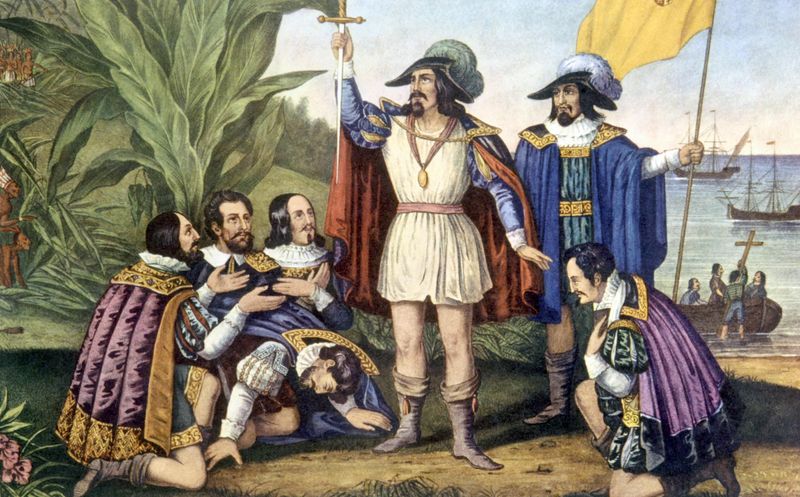Sometimes it really is your lucky day, and for Christopher Columbus that day came on February 29, 1504. As well as being a leap day, this peculiar date also saw a total lunar eclipse occur in the Caribbean night sky, allegedly allowing the famous navigator to trick his native hosts into treating him and his crew like royalty.
According to reports attributed to Columbus’s son Ferdinand, the sneaky move came at a time when tensions between the sailors and the local Arawak people of Jamaica were dangerously fraught. Having been stranded on the island since mid-1503 thanks to an infestation of marine worms eating chunks out of their ships, Columbus and his men were initially well-received by the natives, yet after more than half a year of supplying their guests with food, the Arawaks’ patience and hospitality were beginning to wear thin.
Supposedly, things took a sour turn when half of the crew mutinied, going on a rampage that saw some Arawak killed and others robbed. Faced with the prospect of famine as their supply of complementary food was subsequently held, Columbus is said to have hatched an ingenious plan to save his skin.
Fortunately for him, all European sailors at the time were equipped with an almanac containing astronomical tables for the period 1475 to 1506. Compiled by the great German mathematician Johannes Müller von Königsberg - also known as Regiomontanus - the document provided vital information about the movements of the sun, moon, planets and stars.
A quick glance at the almanac in late February 1504 told Columbus that a total lunar eclipse was imminent. Approaching the Arawak chief, Columbus said that his Christian god had become enraged at the locals’ unwillingness to feed their guests, and would obliterate the full moon as a sign of his displeasure.
Legend has it that when the lunar eclipse occurred at the exact time specified by Columbus, the panic-stricken Arawak begged forgiveness and promised to appease the Christian god by keeping the sailors well-fed. The story goes that from that moment onwards, Columbus and his crew wanted for nothing as they continued to wait for a rescue ship, which eventually arrived in June 1504.
In truth, the historical veracity of this legend is difficult to ascertain, although we do know that a total lunar eclipse occurred over Jamaica on this date. Typically referred to as the Columbus Eclipse, this famous astronomical event has inspired numerous fictional episodes, including one incident in Mark Twain’s 1889 novel A Connecticut Yankee in King Arthur's Court, in which the lead character weasels his way out of being burned at the stake by foretelling a solar eclipse.
With a total solar eclipse set to occur over North America on April 8, this old trick might come in handy for anyone who finds themself in mortal peril at this time.




